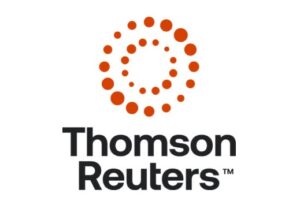The Department Of Education Approved A Shockingly Low Number Of Federal Student Loan Forgiveness Applications
It's unconscionable that 99 percent of loan forgiveness applicants have been denied.
 The Department of Education recently released a report which detailed the number of loan forgiveness applications and the number granted as of June 30, 2018. The report focused on two loan forgiveness programs: the Public Service Loan Forgiveness (PSLF) and the Borrower Defense to Repayment program. Unfortunately, the number of loans forgiven under both programs are disturbingly low.
The Department of Education recently released a report which detailed the number of loan forgiveness applications and the number granted as of June 30, 2018. The report focused on two loan forgiveness programs: the Public Service Loan Forgiveness (PSLF) and the Borrower Defense to Repayment program. Unfortunately, the number of loans forgiven under both programs are disturbingly low.
The Department received 33,000 loan forgiveness applications under the PSLF program of which 29,000 were processed. Of these 29,000 processed applications, 70 percent of them were denied due to not having eligible loans, being on the wrong repayment plan, not meeting the 120 qualifying payments, or not having the requisite employment for a non-profit organization. Another 28 percent of applicants had their applications denied due to missing or incomplete information on their loan forgiveness applications. Of the original 29,000 applicants, only 96 applicants have had their loans forgiven.
In short, 99 percent of loan forgiveness applicants have been denied. While these numbers may seem shocking, it may not be as bad as people think.

Curbing Client And Talent Loss With Productivity Tech
First, the PSLF program only applies to Federal Direct Loans. When PSLF was first available in 2007, there were other, ineligible federal loan programs available that have since been discontinued — the Federal Family Education Loan (FFEL) and the Perkins Loan. Also, private student loans are not eligible for PSLF. Today, almost all federal student loans are Federal Direct Loans, which means there will likely be an increase in loan forgiveness in the future.
Second, many of the noncompliance issues can be corrected. If your application was denied because you were not enrolled in a qualifying repayment plan (this usually means not being in an income-based repayment plan) then you may be able to apply for relief through the Temporary Expanded Public Service Loan Forgiveness (TEPSLF) program. However, funding for TEPSLF is limited so apply as soon as possible while supplies last. And if you are one of the 28 percent whose applications have been denied due to missing paperwork, be sure to provide them what they request as soon as possible.
However, most of the controversy surrounding the PSLF program involves not meeting the 120 qualifying payments or not working for a qualifying employer. This can result in delays, wasted payments, and even complete disqualification from the PSLF program. So make sure that you have proper employment certification and that all 120 payments have been verified before applying for loan forgiveness.
The second item of interest from the Department’s loan forgiveness report concerns the Borrower Defense to Repayment Program which I wrote about a few years ago. This program provides full student loan forgiveness with no income tax consequences if the applicant can show that the school misled students about employment and future income opportunities in violation of state laws to induce them to enroll. Interest in this once obscure program increased in light of the investigation and fraud lawsuits against the for-profit Corinthian Colleges.
Sponsored

Thomson Reuters' Claims Explorer: A Powerful Tool For Legal Claim Identification


Tackling Deposition Anxiety: How AI Is Changing The Way Lawyers Do Depositions
Law Firm Business Development Is More Than Relationship Building

Luxury, Lies, And A $10 Million Embezzlement
The report states that the Department received approximately 166,000 borrower defense loan forgiveness claims. About 64 percent of those claims were still being processed. However, of the nearly 60,000 processed claims, 80 percent had been approved, resulting in $534.8 million in loan discharges.
The approval percentage is promising if you can get your forgiveness application processed. However, most of the forgiveness approvals were for former Corinthian and ITT Tech students. I personally know only two attorneys who have applied for borrower defense forgiveness and both of their applications are still being processed. I have not heard of any recent law school graduates obtaining forgiveness under the borrower defense program claiming that law schools misrepresented post-graduate employment numbers. In other words, the law school scam.
In addition, the Department of Education under Secretary Betsy DeVos has been trying to delay implementation of the borrower defense regulations issued in 2016 which were considered favorable to students but not to schools. But a federal judge recently ruled that the Department’s delay tactics are unlawful.
While it is unclear as to whether victims of the law school scam will be able to obtain borrower defense loan forgiveness, the graduates and former students of the now defunct Charlotte School of Law have the best chance of recovery. The school has been investigated by the North Carolina Attorney General’s office who has demanded that the Department of Education provide loan forgiveness options for its former students. In addition, a class-action lawsuit brought against the school by its former students resulted in a paltry $2.65 million settlement which will not even come close to reimbursing the hundreds of thousands of dollars they borrowed to attend.
Sadly, it seems like obtaining loan forgiveness will take a lot more work and adds a layer of unneeded complexity and headaches to those who are already stressed about their financial futures. While PSLF ultimately needs to be seriously reformed or even repealed in the future due to its potential for abuse, a 99 percent denial rate for existing enrollees is unconscionable. While I understand that there will be issues in the beginning phases of processing loan forgiveness applications, there should have been systems in place to minimize them. And while it might seem tempting to blame the Trump Administration and Secretary DeVos for this, graduates have had problems with establishing PSLF eligibility for years before they came into office.
Sponsored

Luxury, Lies, And A $10 Million Embezzlement

Curbing Client And Talent Loss With Productivity Tech
I mentioned previously that students in the PSLF program need to stay on top of their student loan repayments because the government has no incentive to forgive the loans. The Department’s report is proof of this. While some of the issues can be corrected, it means that your forgiveness date will be delayed.
As for the Borrower Defense to Repayment, it may be an option for those who believe they are the victims of the law school scam. But since no attorneys have reported getting their loan forgiven through this program, applicants are walking in uncharted waters. They risk having their loans being placed in forbearance limbo status for years only to have their forgiveness applications denied.
Shannon Achimalbe was a former solo practitioner for five years before deciding to sell out and get back on the corporate ladder. Shannon can be reached by email at [email protected] and via Twitter: @ShanonAchimalbe.







